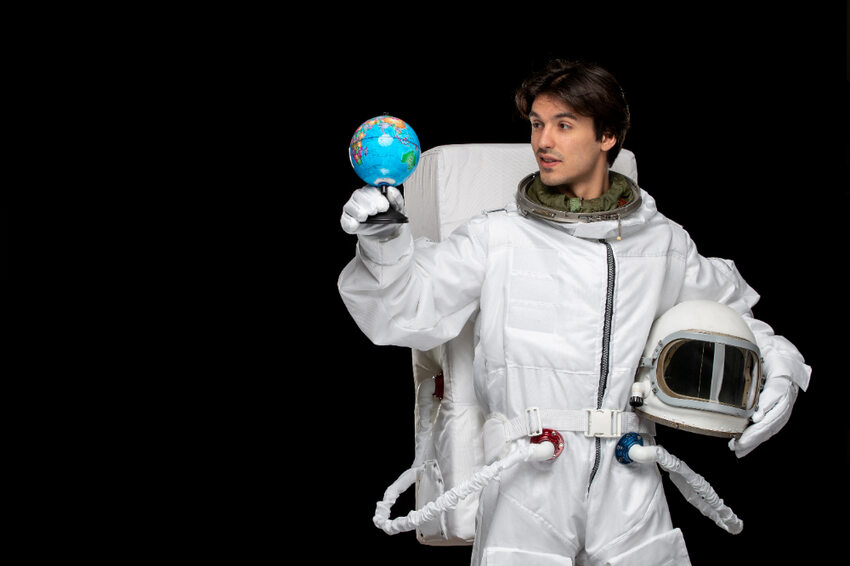Space science is an exciting and rapidly expanding field, offering endless opportunities for discovery and innovation. From exploring distant galaxies to developing cutting-edge satellite technologies, a career in space science demands a blend of technical expertise, analytical skills, and creative problem-solving. Key skills such as programming, data analysis, teamwork, and adaptability are essential to thrive in this industry. With advancements in space technology and increased private sector involvement, the demand for skilled professionals continues to grow. By cultivating these abilities and pursuing specialized education, aspiring individuals can embark on a stellar journey, contributing to groundbreaking achievements in space exploration and research.
Introduction to the growing field of space science
Space science is one of the most fascinating and rapidly advancing fields of our time, blending the mysteries of the universe with cutting-edge technology. From unlocking the secrets of distant galaxies to developing life-saving satellite applications on Earth, space science drives innovation and pushes humanity’s boundaries. With increasing global investment and private sector participation, opportunities in this domain are expanding like never before. Pursuing a space course can be a gateway to mastering essential skills such as astrophysics, programming, robotics, and data analysis, preparing you for roles in research, technology, and exploration. This specialized education helps you understand the intricate workings of space technology while offering hands-on learning experiences. Whether aiming to work on satellite systems, planetary exploration missions, or climate monitoring, space science opens doors to a universe of opportunities, allowing you to contribute to humanity’s quest to understand and navigate the cosmos.
Understanding Space Science: A Journey Beyond Earth
Space science is the study of the universe beyond our planet, encompassing a wide range of disciplines such as astronomy, astrophysics, planetary science, and space exploration. This multidisciplinary field drives innovation and fuels humanity’s curiosity to explore the cosmos while solving critical challenges on Earth.
What is Space Science?
- Definition: The scientific study of celestial objects, space phenomena, and the processes governing the universe.
- Scope: Includes areas like satellite technology, space missions, and cosmic research.
- Application: Used in weather forecasting, GPS systems, and disaster management through satellite-based technology.
Why Space Science Matters
- Technological Innovation: Space exploration leads to breakthroughs in robotics, artificial intelligence, and materials science.
- Earth Benefits: Climate monitoring, resource mapping, and communication technologies rely on advancements in space science.
- Global Collaboration: Encourages international cooperation through joint missions like the International Space Station.
Pursuing a space course equips you with knowledge and hands-on skills, fostering expertise in areas like satellite engineering and data analytics. With growing opportunities in research, private space ventures, and governmental projects, space science offers an exciting pathway to contribute to humanity’s understanding of the universe while addressing global challenges.
Essential Skills for a Career in Space Science
To thrive in space science, professionals require a diverse set of technical and analytical skills. Here are the key skills essential for success in this field:
- Strong Mathematical and Analytical Skills
Space science heavily relies on complex calculations for trajectory planning, satellite positioning, and data analysis. For example, NASA scientists use advanced mathematics to chart spacecraft orbits. - Proficiency in Programming and Data Analysis
Programming languages like Python and MATLAB are vital for analyzing vast datasets collected from satellites and space missions. For instance, space scientists analyze Mars rover data using advanced coding techniques. - Knowledge of Physics and Engineering
Understanding principles like thermodynamics and mechanics is crucial for designing spacecraft and space equipment. Engineers working on the International Space Station rely on these fundamentals. - Problem-Solving and Critical Thinking
Creative solutions are needed to address challenges like communication delays or equipment malfunctions during missions.
By developing these skills, through space science courses, aspiring professionals can prepare for impactful roles in the growing space industry, from satellite development to interplanetary research.
Career Pathways in Space Science
Space science offers diverse career paths for individuals passionate about exploring the cosmos:
- Astrophysicists
Professionals study celestial phenomena and the physics of the universe. They work with advanced telescopes and data to uncover the secrets of galaxies and stars. - Aerospace Engineers
These experts design, test, and maintain spacecraft, satellites, and launch systems, contributing to missions like SpaceX and ISRO. - Satellite Technicians and Analysts
Involved in satellite communication, weather forecasting, and Earth observation, these professionals ensure optimal satellite operations.
The Future of Space Science Careers
The future of space science careers is promising with the advent of technologies like AI and 3D printing.
- The demand for experts in space robotics, planetary exploration, and sustainable space travel is on the rise.
- Opportunities will expand as space agencies like NASA and private firms like Blue Origin push boundaries.
Enrolling in a space technology course equips aspiring professionals with cutting-edge skills, fostering career growth in this dynamic field.
Conclusion
In the ever-expanding realm of space science, developing essential skills is crucial for launching a successful career. From mastering technical expertise in robotics and satellite systems to embracing collaborative and analytical abilities, space science professionals are shaping humanity’s future beyond Earth. As advancements in space exploration continue, opportunities in fields like astrophysics, aerospace engineering, and satellite technologies are growing exponentially. Enrolling in specialized programs, such as space technology courses, empowers aspiring individuals to acquire the knowledge and expertise needed to excel in this innovative industry. Embark on your journey today to contribute to the extraordinary possibilities of space exploration.
Read Dive is a leading technology blog focusing on different domains like Blockchain, AI, Chatbot, Fintech, Health Tech, Software Development and Testing. For guest blogging, please feel free to contact at readdive@gmail.com.





